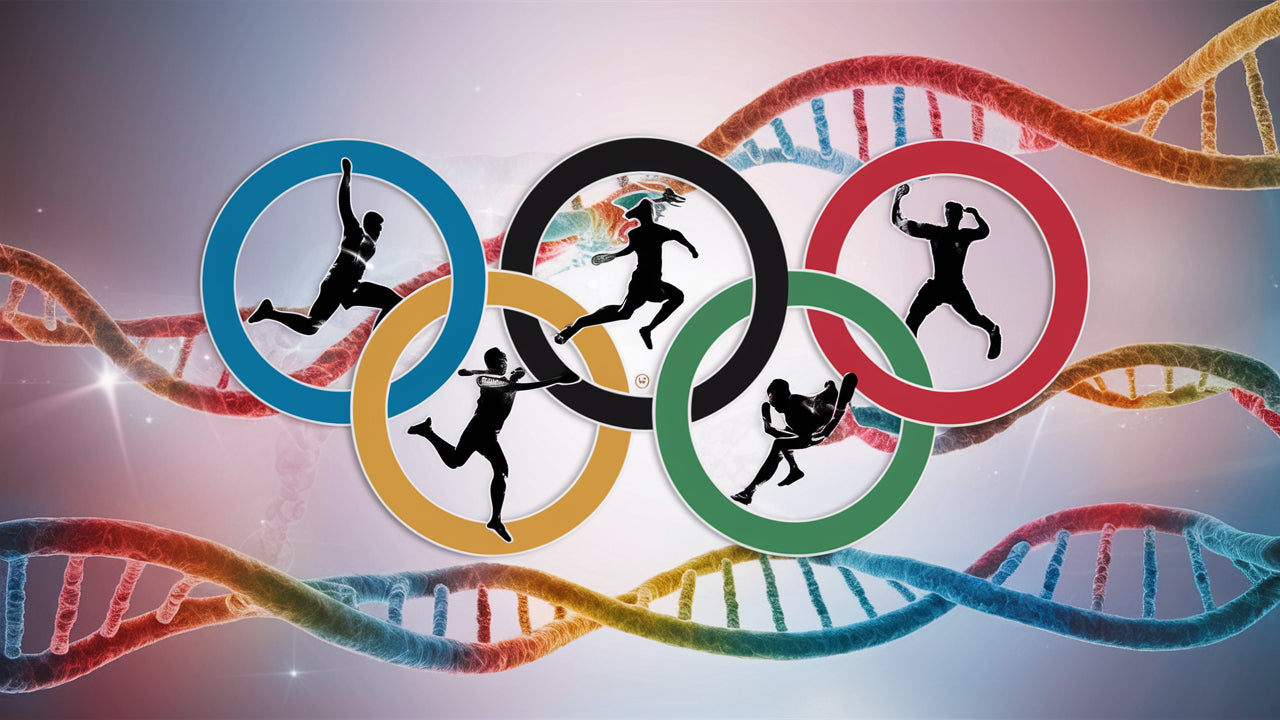The Olympic Games are a testament to the pinnacle of human athleticism, a global stage where athletes from diverse backgrounds compete for glory. But have you ever wondered how much of this incredible performance is influenced by genetics?
The ACTN3 Gene: A Sprint and Power Connection
One gene that has garnered significant attention in sports genetics is the ACTN3 gene. This gene provides instructions for making a protein called alpha-actinin-3, found in fast-twitch muscle fibers – crucial for explosive power and speed, often seen in sprinters.
Research has shown a correlation between specific variants of the ACTN3 gene and elite athletic performance. However, genetics is just one piece of the puzzle.
Diverse Genetic Advantages: Beyond Kenya
While Kenya's dominance in long-distance running is undeniable, other countries also exhibit genetic traits that contribute to their athletic success:
- Jamaica: Renowned for sprinting, Jamaican athletes often possess a higher percentage of fast-twitch muscle fibers, ideal for explosive power.
- Ethiopia: Similar to Kenya, Ethiopia's high-altitude environment and cultural emphasis on running have fostered a deep pool of endurance running talent.
- China: Chinese athletes excel in sports like diving, gymnastics, and table tennis, where traits like flexibility, balance, and hand-eye coordination are paramount.
The Kenyan and Ethiopian Endurance Advantage: A Complex History
Research suggests the ACTN3 gene may have evolved to favor endurance running in certain populations. The variant associated with reduced alpha-actinin-3 production has been linked to enhanced endurance, potentially contributing to the success of Kenyan and Ethiopian endurance athletes.
Interestingly, some researchers hypothesize that the transatlantic slave trade may have played a role in the distribution of this endurance-related ACTN3 variant. The brutal conditions of the Middle Passage could have acted as a selective pressure, favoring individuals with enhanced endurance. However, this is a complex and sensitive topic requiring further research.
Interesting Genetic Traits and Athletic Performance
Beyond ACTN3, numerous other genes have been linked to various aspects of athletic performance:
- ACE Gene: Associated with improved aerobic capacity and endurance.
- PPARGC1A Gene: Plays a role in energy metabolism and muscle fiber type.
- COL5A1 Gene: Influences tendon and ligament strength.
MyFitGene and MapmyGenome's Collaboration with Gopichand Academy
Companies like MapmyGenome offer genetic tests, such as MyFitGene, that analyze an individual's genetic profile to provide insights into their athletic potential, injury risk, and optimal training strategies. Notably, MapmyGenome has collaborated with the renowned Gopichand Badminton Academy in India to explore the potential of genetic testing in badminton players.
Genetic Testing in Indian Athletes and Olympic Preparedness
India, with its vast population and sporting potential, has historically won a modest number of Olympic medals. However, recent discussions in the Lok Sabha (Indian Parliament) have highlighted the potential of genetic testing as one tool to identify and nurture talent, potentially improving India's Olympic medal tally.
While still a developing field, there's growing interest in genetic testing for sports performance in India. Some Indian cricketers have undergone testing to understand their fitness and nutritional needs. Organizations like the Sports Authority of India (SAI) are exploring genetic testing for talent identification.
Enhancing Athletic Performance: A Multifaceted Approach
While we can't change our genes, we can optimize our athletic potential:
- Personalized Training: Tailoring programs to individual genetic profiles.
- Nutrition & Supplements: Supporting muscle growth and recovery.
- Altitude Simulation: Simulating high-altitude training.
- Mental Training: Enhancing motivation, resilience, and focus.
- Genetic Testing (MyFitGene): Gaining insights into genetic predispositions.
The Future of Sports Genetics
As we understand genetics better, we'll see more personalized approaches to training, talent identification, and injury prevention in sports. While genetics provides a foundation, it's the combination of genes, environment, and dedicated training that ultimately shapes an athlete's journey.
Important Note: Genetic testing for sports performance is still evolving. Results should be interpreted cautiously and in conjunction with other factors.






















